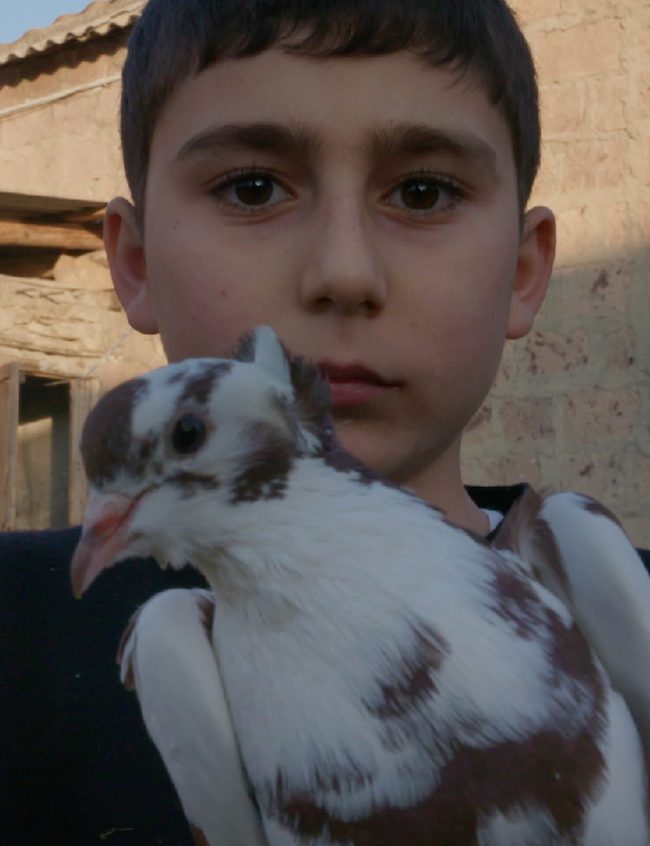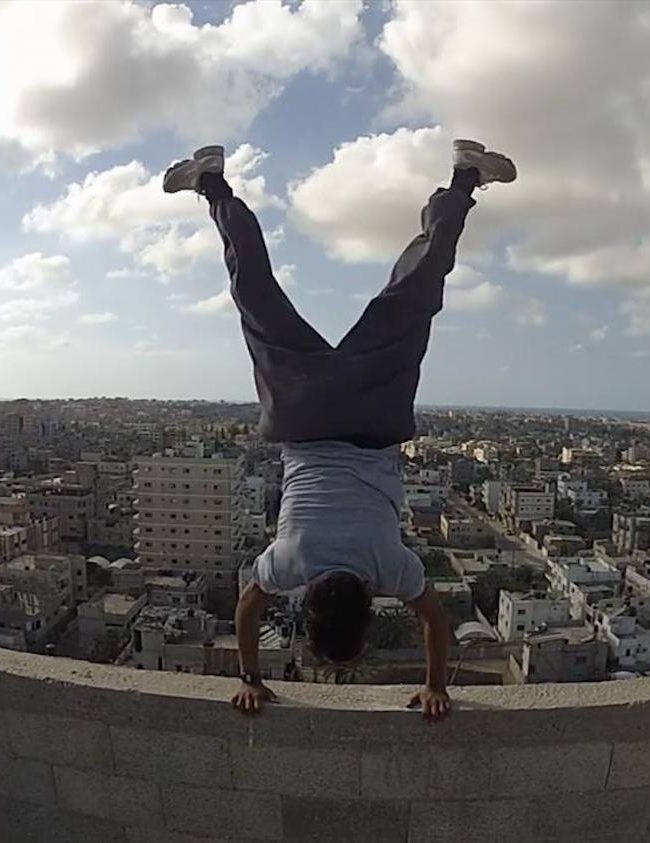A Conversation with Jo Ardinger & Rosalie Miller (PERSONHOOD)
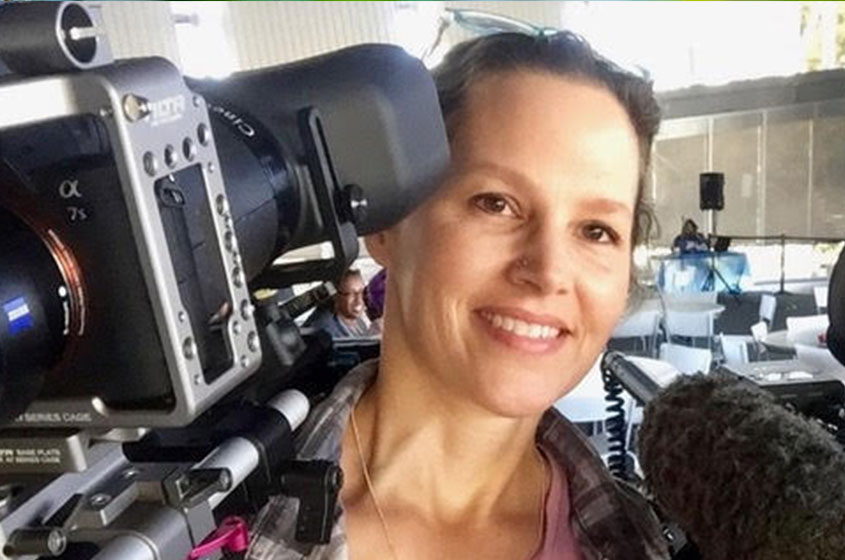
I met with first-time documentary-feature director Jo Ardinger and producer Rosalie Miller on Sunday, November 10, 2019, at DOC NYC, to discuss their collaboration on Personhood (which I also reviewed). The movie analyzes the rise of fetal “personhood” movements, focusing on one particular case, specifically: that of Tammy Loertscher, an expectant Wisconsin mother jailed for refusing to participate in a court-mandated inpatient drug treatment program. Stripped of her rights, treated as a mere vessel to carry forth a new life – one then deprived, ironically, of the prenatal care needed because of the prison sentence – Loertscher is a symbol of a new (though brewing for some time) and dangerous ideology. Here is a condensed digest of our conversation, edited for length and clarity.
Hammer to Nail: So, this film has many moving parts, but hangs mostly on Tammy Loertscher’s story. Did you start with her and then build the rest, or did you start with personhood laws and then find Tammy?
Jo Ardinger: I started with the personhood laws and then Tammy came to us later. Initially, I was looking at it through the lens of how personhood laws would affect women’s access to abortion and then kind of uncovered this layer that no one was really talking about, which is the criminalization of pregnant women. That led us to National Advocates for Pregnant Women, and they had started working with Tammy on her case, and that’s how we were introduced.
Rosalie Miller: Jo started working on Personhood, I believe, in 2011, originally.
JA: The tail end of that year, yes.
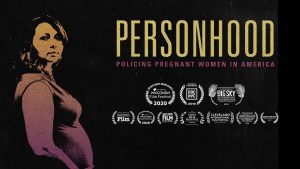
RM: Yeah, kind of starting the development process, and I came on at the end of 2013. So she has been at this for a very long time.
JA: I got the idea in 2011, during an off-year election, and Mississippi had a Personhood Amendment on their ballot, and I had never heard of it. I had heard of all the laws that were restricting access to abortion. There were hundreds that had been passed, but this felt very different. It felt scarier, with huge implications. And so I just started researching it. And then by January of 2012, I was in Colorado interviewing the people from Personhood USA, which is really the group that was behind all of these state ballot initiatives and lots of pieces of legislation.
HtN: So, how did you pitch it to them, because your film is definitely not on their side? I’m always curious when I see a documentary that is potentially very antagonistic towards its subjects. I mean, a lot of times people don’t care. Regardless of subject, people are often just happy to tell their story, but what was your pitch to Personhood USA to be in this documentary?
JA: I told them that I was making a film about the Personhood Movement. It was new to me, I didn’t think a lot of people had heard about it, and I wanted to include their perspective in the documentary. I didn’t want to make a one-sided documentary, but I wanted to make sure that they had a chance to say what these laws were about. And I think they’re the best people to speak to that because it really also gives you an idea that, for a lot of these people in the movement, it’s not as much of a political power thing. They’re doing it because it’s what they really believe in it and this is the fight of their life. They feel that this is their purpose to fight these laws, and I think they get taken advantage of, politically. So, I just pitched it that way. I just wanted to be able to give their side, and I was very careful in the edit to make sure that I just let them tell their beliefs and not edit them in any way that would kind of manipulate that.
HtN: I always admire filmmakers who include the opposite points of view and do so in a respectful way to the subjects, even if I don’t agree with those subjects. So, thank you.
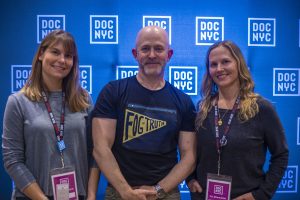
Director Jo Ardinger, our Chris Reed and producer Rosalie Miller
RM: That was one thing, actually, that really piqued my attention when I came onto this film. I mean, first of all, when Jo described the film to me, I didn’t even know what fetal personhood was. I didn’t know what fetal personhood laws were, what the legislation was. But when she shared with me, I think it was a 10-minute clip at that point, and I saw the personhood camp or those from Personhood USA, I thought, “Wow, what a nuanced approach to a very different kind of conversation.” And as a producer, that was really compelling to me and I was hooked.
JA: Initially, I thought that there could be a place in the documentary for some common ground. I learned very quickly that there is no common ground on this issue. I thought that people would come to an agreement that women’s health, the health of the mother, and all of these things were primary and then try to get some leeway on either side. And this really is not that kind of issue. And that’s one of the reasons why we wanted to investigate the criminalization of pregnant women, because abortion is so divisive. You’re either in one camp or the other and there’s no movement. And so we’re hoping to reach people who may not personally agree with abortion, but they certainly don’t want to see women losing their civil rights.
HtN: Or, if they truly are believers that life begins at conception, and you therefore must make sure that unborn children are protected, how can putting the pregnant mother in jail without any prenatal care be good for the fetus? Hopefully, you can reach people in that way.
JA: What happened to Tammy is so disturbing, especially because her primary goal was to have a healthy pregnancy, which is how she got in this whole mess in the first place. She was very honest with the doctors about where she was at in her health, and that was used against her and ended up punishing her. And in effect, the thing that upset her the most was, she said, “In treating me this way, they were treating my baby maybe even worse.” And so that was just one of the reasons why she wanted to fight this law.
HtN: Good for her, and good for you for telling that story. So, I was shocked to see my state of Maryland among the 38 states on the map of places with some kind of personhood laws. I mean, it’s a liberal state, or at least mostly. I think, though, that some states on that map perhaps have just some kind of restrictions on abortion. Is that what that map is about?
JA: That map is really about 38 states that have laws that allow the fetus to be looked at as a potential victim of a crime. So there are many states that have these laws in place. They have explicit exceptions for the pregnant woman, herself. In not all of these states can these laws be used against a pregnant woman, but the danger there is that once you have that law on the books, depending on who’s in charge, who’s the DA, who’s the local judge, depending on how it’s interpreted, those laws can then in the future be used against pregnant women.
So, that’s why we were so specific with the language, that 38 laws look at a fetus as a potential victim of a crime. And we try to really show how these laws get put into place in the film where there’s a tragedy that happens. And, of course, public opinion is then really behind that. They don’t want these things to happen to pregnant women, but they just don’t understand that, in the future, the law that they support could be used against them.
RM: Yeah, I mean, attorney Farah Diaz-Tello, of If/When/How, lays that out pretty well in the film, giving an example that if a woman was to get into a car accident and that woman was pregnant, and if she was in a state where there was a fetal protection law in place, depending on who’s interpreting it, how it’s being used, who gets to decide, that law could be turned around and used against that pregnant woman, even though that was just a car accident. So, it’s like, now you have someone who’s been through this traumatic experience who’s now being punished and potentially criminalized. So…
HtN: Well, we saw that with a woman who was shot in the stomach, who was then criminalized, although they then ended up dropping the charges, I believe.
RM: Yeah, just a few months ago.
JA: Yeah. And I don’t actually think it matters that they dropped the charge because it’s so…There was a woman who had fallen down the stairs many years ago and some nurse thought she did it on purpose. I mean, then they’re spending a weekend or a week in jail and already that’s just re-traumatizing them. So, you’re right. That case is so obscene that the woman who shot her didn’t face any charges. But she faced charges because she shouldn’t have put herself in the situation where she was getting in an argument. Think about how broad that could be.
RM: And that’s an example, too, of the policing aspect, which we talk about in the film. We’re judging her, like she should not have been in that situation. It’s just so wild to me.
JA: And you’re picking and choosing, too. I mean, we know that cigarette smoking is one of the most harmful things that you can do during pregnancy, as well as drinking. There’s clear evidence about those, but people aren’t going to jail for smoking cigarettes at this point. And we know that causes low birth weights and other problems. So it’s just, again, you can’t have laws in place that are applied so, what’s the word? Willy-nilly, I guess.
RM: Frivolously.
JA: Yeah, frivolously.
HtN: Haphazardly.
JA: Yeah. And depending on your belief. So, for instance, in Wisconsin now there’s a new DA, and that bodes well for maybe getting some traction on changing this law. But the previous DA, he was hell-bent on applying it as often and as many days as he could. He didn’t want to go a day without applying that law.
RM: And I think there’s that argument that it’s a specific group of people. It’s not just pregnant women. It’s pregnant women who are socioeconomically vulnerable. It’s black and brown bodies. So, again, it’s like who is getting to decide this? Who’s interpreting this? At this point, it’s at the municipal level. I mean, what happened to Tammy was at the municipal level. It is a certain group of people who are being targeted. I think, as we talk more about this film, we definitely want to make sure that we are talking about socioeconomic privilege. We’re talking about class and we’re talking about race. We’re talking about the mass incarceration crisis in our country. All of that is intersecting in this film. And I think Jo’s just done a really great job of making sure that those layers are in a film like this, because there is so much nuance to this conversation.
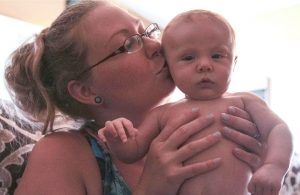
A still from “Personhood”
HtN: I just want to ask, speaking of that court case with Tammy, how did you get access to the audio files? Was that public access, or did you have to request those? Because it’s pretty remarkable that we have that in the film.
JA: The court recording, and there is stuff that isn’t in the film from the court recording, just brought me to tears thinking about Tammy being in that situation. All of these proceedings are done in secret, under the cloak of the juvenile court system. But part of Tammy’s lawsuit, when she took on the state, was to get her records unsealed. And in doing so, when the judge agreed to that condition, as he was looking at the case, I was able to get access to that court recording. And yeah, it was pretty remarkable to hear the voices. It’s one thing to read the court transcripts, but to actually hear Tammy being railroaded in this fashion was really disturbing.
HtN: As disturbing, perhaps, as that was discovering that part of this Personhood Movement involves people, mostly men, referring to pregnant women as “hosts,” which blew my mind. After watching the film, I googled that to see how many references I could find. I didn’t spend a lot of time googling, but how often have you seen this, perhaps in the research of your film, actually being a term that is used to describe pregnant women outside of the world of fantasy, like in The Handmaid’s Tale. Is this actually something that people are actively saying to describe pregnant women?
JA: Sure. And it’s incredible that we were able to get this on local news. If you think about someone who is willing, in their political position, to call women “hosts” on a national news network, or with a reporter, then what are they saying behind closed doors, with all the rest of the people who are pushing these policies? We know that this is just the tip of the iceberg. And so we chose the two most egregious examples, I think, because it’s pretty shocking to hear them. The one guy is kind of humorous when he says, “Oh, I googled that and couldn’t find a better term.” But hearing the other gentleman talk about “host bodies” is even more dehumanizing. And I think that that is what’s really so disturbing, because that’s at the element of all of this. We’re dehumanizing women for the sake of a fertilized egg, embryo or fetus.
HtN: Well, as my father always likes to say, “For the Pro-Life Movement, life begins at conception and ends at birth.” So…yeah. Final question, then: what is your call to action? If somebody watches your film and goes to the website at the end, what are you urging people to do to help combat the extremes of these positions?
JA: Of course, it’s to vote, because these laws are being made and enforced at the local and municipal levels. Depending on what DA or what county attorney is there, these laws aren’t applied equally across the state. So, vote in every single election. But also, I think there is this call to become engaged and stay engaged in learning where the reproductive justice organizations are in your state or in your county, and see what you can do to help facilitate this kind of framework that’s looking at all the different aspects of women’s lives. I just still say, get educated. Stay informed. See what your state senators, or your federal congressmen, what are they thinking about these issues? And then vote, vote. That’s it. Vote. It’s our biggest power here.
RM: Yeah, I mean, first and foremost, this sounds so clichéd for me to say this, but we really do have to raise awareness, because when I started on this film, I had no idea what fetal personhood even was. I didn’t even know what that meant. So, I think, we need to raise awareness, like Jo said. There’s that educational component of it.
I also hope that our film, in this time in history, can really help dismantle what I believe is a culture that is very misogynistic against women. And also how we start to really value women, mothers, families, and children, even. You brought up a really good point about how it pretty much stops as soon as that child is brought into the world, right? We do a really poor job in this country of supporting mothers and families and children and giving them the support that they really need for us to just thrive as citizens. From a cultural construct, I think that’s something Jo and I are really talking about.
And we’re talking about also possibly changing policy in the state of Wisconsin. We’re in the very infancy stages of our impact campaign right now. So we’re building it out as we’re showing the film and going around to film festivals. We don’t yet know what that’s going to look like. And we’re raising money as well. So, a lot of that depends on how we scale it. But yeah, I mean, it’s very multilayered. The timing could not be more perfect with 2020 on the horizon.
HtN: Yes, it is looming on the horizon, is it not? But as you said, it’s not the federal elections that are necessarily the most important. It’s every election.
RM: Yeah, and Jo and I talk about this a lot. I’ve learned so much just working on this film, over the years. I mean, I hope it’s changing now that people are just pissed off, in general, in terms of who’s in the White House. But a lot of people don’t vote in their local elections. They don’t give it a lot of thought. But that is really where there is a lot of power happening in the states. We give a lot of power to the states and so it is trickling down in those municipal efforts. And I’ve definitely had a real education on this film.
HtN: Well, I wish you all good things with the film and with the impact campaign. Thank you so much.
RM: Thank you!
JA: Thank you so much!
– Christopher Llewellyn Reed (@ChrisReedFilm)
Like what you see here on Hammer to Nail? Why not pay just $1.00 per month via Patreon to help keep us going?








